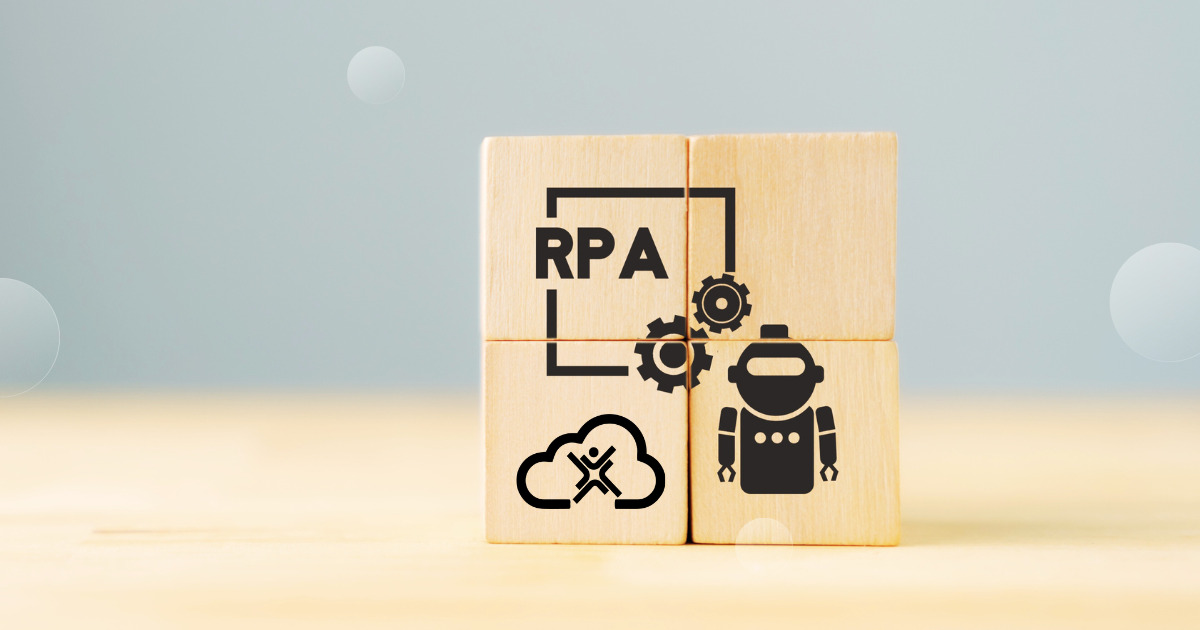Robotic Process Automation (RPA) is a new software technology that has the potential, in conjunction with AI technologies, to transform business processes, policies, and Enterprise Resource Planning (ERP) systems.

RPA removes workers’ mundane, time-consuming tasks so that they can alternatively focus on innovation and creation. With RPA, software robots, rather than humans, quickly and efficiently perform data system tasks. Simple software robots can log in to data systems, locate and move files, insert and alter information in data systems, and assist in analytics and reporting.
More advanced software robots, especially if they have AI technology, can interpret, organize, and make decisions in a cognitive, human-like way. Businesses will discover that RPA technology is relatively inexpensive to implement, and it is business-ready and scalable.
A variety of different industries — in manufacturing, finance, and healthcare — can benefit from adopting RPA technology into their business operations and processes. The benefits of RPA technology are expansive, and these benefits carry over into ERP system implementations and ERP processes. Ultimately, with RPA, businesses can focus on improving their workplace atmospheres so that they are more efficient and productive.
What are the benefits of Robotic Process Automation (RPA)?
As businesses seek to automate their work flows to become more efficient and productive, Robotic Process Automation (RPA) will continue to transform workplace atmospheres and advance processes and operations while increasing production and profits. By implementing RPA technology, businesses will realize the following benefits:
- RPA is initially inexpensive to implement and is ready for use, with minimal coding, by most data systems.
- RPA eliminates some of the monotonous, arduous tasks that fatigue workers.
- RPA eliminates human error and encourages speed, efficiency, and accuracy of repetitive tasks.
- RPA adapts to meet increased production needs and ultimately reduces costs and increases production.
- RPA creates a happier working atmosphere in which employees can focus on customer relations and innovation rather than mundane tasks.
- RPA encourages a strong increase in rate on investment (ROI).
- RPA promotes consistent compliance with industry and government standards.
- RPA enhances security by eliminating human interaction with sensitive, private information.
- RPA can automatically generate reports and analytics that businesses can use to improve their processes and operations.
How does Robotic Process Automation (RPA) integrate with ERP systems?
Enterprise resource planning (ERP) systems are essential for businesses to tailor their workplace atmospheres, and by utilizing Robotic Process Automation (RPA), businesses can automate and reappropriate mundane tasks to software robots rather than humans.
Users will be able to realize the full benefits of ERP systems and focus on more foundational tasks while RPA accomplishes lower-skilled, mundane tasks. ERP systems will experience similar benefits that businesses have when integrating Robotic Process Automation (RPA). Some areas that ERP operations can utilize and benefit from RPA include:
- Accurate data capture and transfer
- Assistance with and automation of data migration
- Inventory and supply chain management
- Real-time data sharing
- Real-time analytics and reporting necessary for compliance
Why should businesses integrate their ERP systems with RPA technology?
Many companies are hesitant to implement Robotic Process Automation (RPA) or fear that RPA will eliminate workers. RPA is cost-effective and easy for businesses to implement and integrate into their ERP systems. RPA software increases speed, productivity, and efficiency of processes and operations while encouraging a happier workplace atmosphere.
RPA doesn’t replace humans. It certainly is more consistent and reliable, but there will always be a need for human interaction. Although RPA will eliminate many of the lower-skilled, mundane tasks that humans must perform, workers will still be responsible for higher-skilled, fundamental tasks. As RPA streamlines workplaces and ERP systems, humans will be able to focus on more complex, meaningful tasks that will help businesses grow and maximize profits.
Combining an ERP system with new cloud-based technology allows businesses to experience all the benefits of both while approaching the future with automation and efficiency. Businesses will see cost reductions and great increases in rate on investment (ROI).
ERP systems with integrated RPA technology encourage streamlined workplace atmospheres, innovation, competitiveness, and ultimately, business growth. RPA lets workers enjoy their coffee, innovate, and communicate with customers while it does the grunt work.

